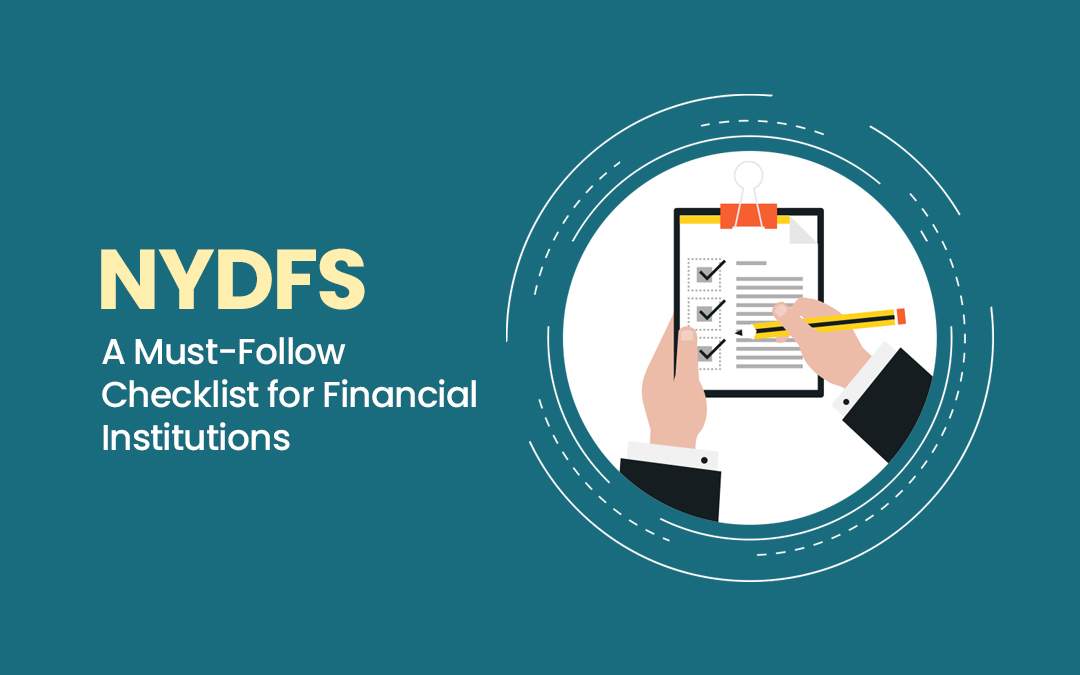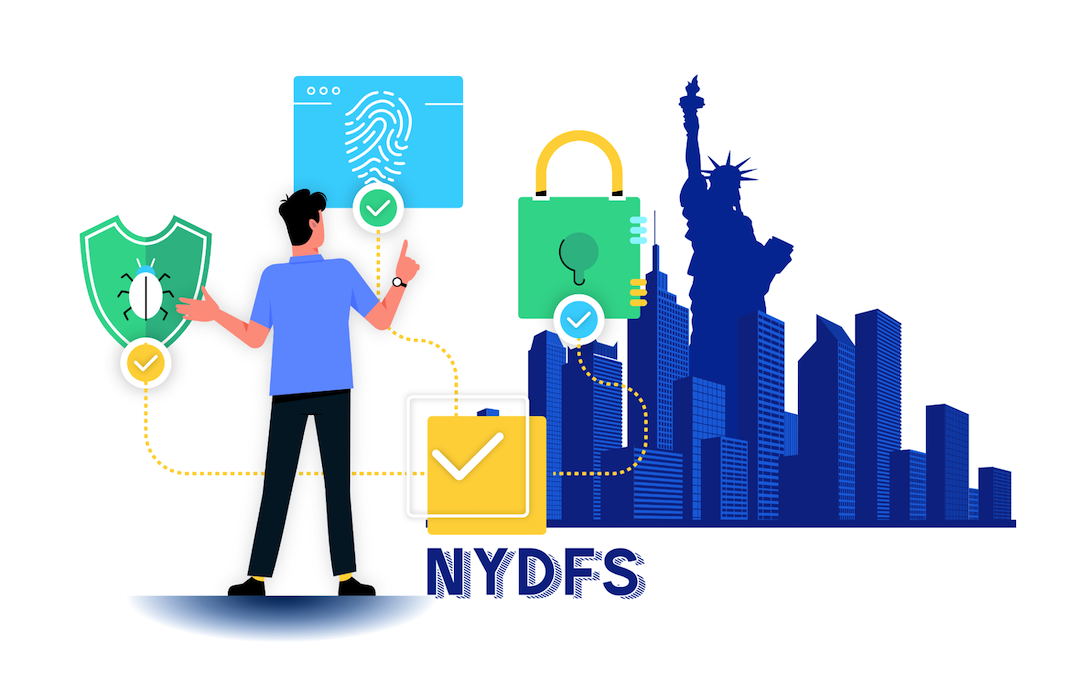
Have you heard about the NYDFS regulations? In the world of finance, they are somewhat significant, particularly if you are doing business in New York. These rules set up some of the toughest standards to protect sensitive information, making them the strict parent of the cybersecurity world. Any financial company doing business in New York “must” follow these rules—it's not just good to have.
What is NYDFS?

(Image Source: ScienceSoft)
The New York Department of Financial Services monitors and controls all forms of financial services (banks, fintech businesses, and others). When a firm handles money or provides financial products/services in New York, it must follow NYDFS regulations to protect consumers and avoid fraud.
Key areas NYDFS Covers:
- NYDFS Cybersecurity Regulation (23 NYCRR 500): Banks must now be more prepared for cybersecurity threats. A cyberattack could cause a serious financial crisis. Banks must follow cybersecurity rules to uncover vulnerabilities in their systems and remedy those vulnerabilities before attacks occur.
- Preventing money laundering and financial crimes is a priority for NYDFS as they view it as fueling organized crime activities. Financial institutions (like banks) must set up money laundering (AML) programs to detect and report any suspicious transactions.
Regulations of NYDFS (New York Department of Financial Services) require companies to:
- Set up a cybersecurity program
- Conduct risk evaluations
- Develop a protocol, for handling unexpected incidents
- Designate a Chief Information Security Officer (referred to as CISO in the form) who will be responsible for overseeing everything
- Restrict access to essential systems
- Set up monitoring to notify the NYDFS of any big cybersecurity events
NYDFS regulations oversee financial services of all kinds:
- Banks
- Fintech companies
- Insurance firms
- Investment organizations
- Mortgage providers
Banks provide services such as checking accounts, savings, and loans. They must meet cybersecurity guidelines in order to secure your data and maintain your trust. Insurance firms that manage health and property risks must protect valuable personal data and have strong cybersecurity policies. Fintech companies follow NYDFS guidelines to address new threats, thereby making online banking safer for all. Investment firms manage your wealth, while mortgage providers make homeownership easier.
Advantages of Following NYDFS Regulations
Keeping up with the NYDFS regulations provides three key benefits:
- Enhance security: Following NYDFS laws can have a substantial impact on your cybersecurity efforts. The rules require financial institutions to spot potential risks and take steps to prevent them.
- It’s all about building trust with customers: People, including you, want to feel confident that their personal information is safe with their bank or financial provider. When companies follow NYDFS regulations, it shows they take security seriously—because they care about protecting their customers.
- Minimize the chances of loss by adhering to the guidelines set forth by NYDFS: Recent studies suggest that financial damages stemming from cybercrime reports might reach $12.5 billion come 2023. Businesses that comply with these standards reduce their vulnerability to financial setbacks caused by data breaches or online security breaches.
Common Challenges of NYDFS Compliance
Many financial institutions have big challenges in complying with NYDFS requirements. Here are some of the most typical issues they face:
- Resource constraints: Many financial institutions struggle to create a comprehensive compliance program because it requires significant resources. This is particularly true for small institutions. They often lack the necessary staffing and expertise to handle compliance.
The solutions?
- Hire external specialists. Sometimes it's smart to get help from professionals. Getting compliance specialists from outside can ease the burden on the current team.
- Set up automatic systems to monitor and report compliance activities. This lets companies focus on more important jobs without getting swamped.
Staying Current with Rule Changes
NYDFS regulations are updated often to tackle new threats and keep pace with changes in the industry. Institutions must keep updated with these modifications and modify their compliance plans as appropriate.
The fix?
- Ensure communication with all parties involved. Providing regular training and updates on the most recent rules and best practices will help employees stay knowledgeable and adaptable.
- Regular reviews ensure compliance initiatives are current and effective.
- Create a separate staff dedicated simply to monitoring regulatory developments.
Data Management
Every day, financial institutions deal with large amounts of data. This makes it difficult to protect and organize sensitive information.
Solutions:
- To improve data management, organizations should conduct an assessment of current procedures.
- Powerful mechanisms for storing sensitive information are necessary.
- Spending money on the correct tool can protect this information from unauthorized access and keep it secure.
Conclusion
NYDFS compliance is required for conducting business in New York's financial industry. Following this checklist and addressing frequent issues directly will help financial institutions maintain compliance and develop a reputation for reliability and trustworthiness with their clientele.
Are you ready to strengthen your cybersecurity defenses and keep your business ahead of the competition?
Check out our other articles for more insight into cybersecurity.
Share this post
Leave a comment
All comments are moderated. Spammy and bot submitted comments are deleted. Please submit the comments that are helpful to others, and we'll approve your comments. A comment that includes outbound link will only be approved if the content is relevant to the topic, and has some value to our readers.


Comments (0)
No comment